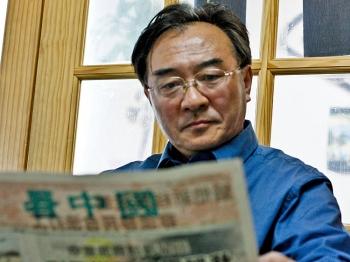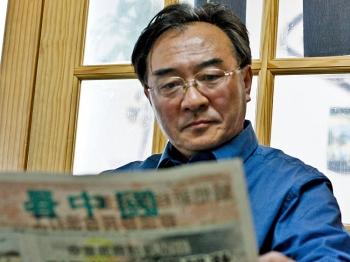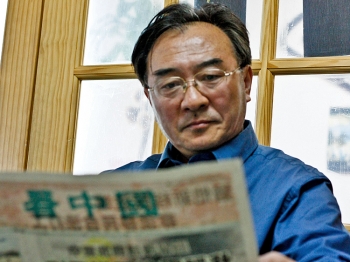For Former Propagandist, Communism in China Is Not Dead… Yet
In China he would visit karaoke bars after work and get bundles of fresh lamb delivered to his doorstep for bribes. Now, living in the Chinese enclave of Flushing, New York.

Sitting in a small office in Flushing, Zhang Kaichen reads one of the newspapers produced by the Chinese dissident community. Matthew Robertson/The Epoch Times
|Updated:
Matthew Robertson is the former China news editor for The Epoch Times. He was previously a reporter for the newspaper in Washington, D.C. In 2013 he was awarded the Society of Professional Journalists’ Sigma Delta Chi award for coverage of the Chinese regime's forced organ harvesting of prisoners of conscience.
Author’s Selected Articles






